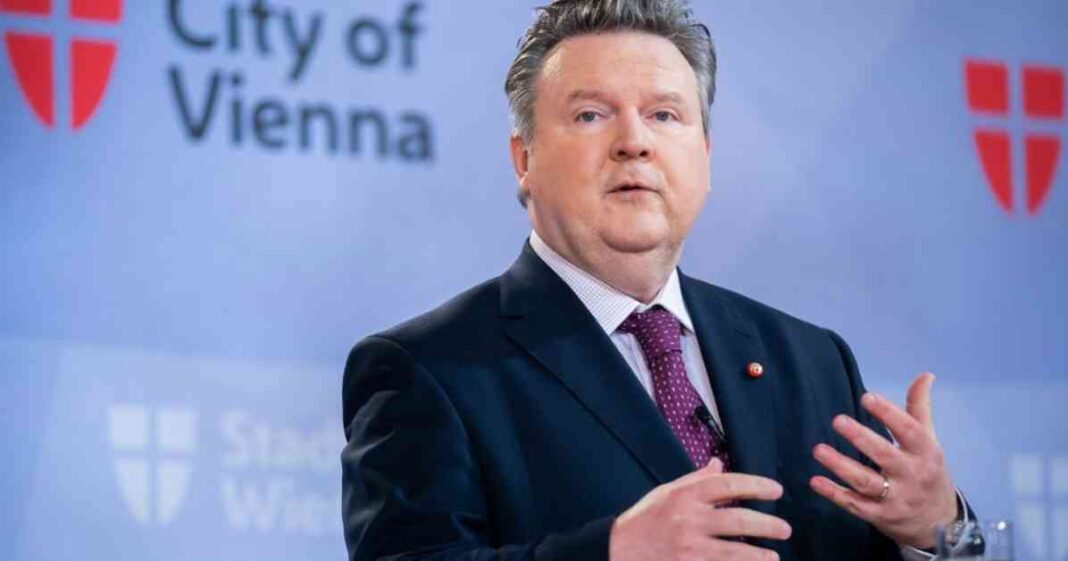Social Assistance: Vienna’s Mayor Ludwig Calls for National Reform
Vienna’s Mayor Michael Ludwig, a member of the Social Democratic Party (SPÖ), has recently raised attention with his demand for a national reform of social assistance in Austria. This comes in response to criticisms from the conservative Austrian People’s Party (ÖVP) and the far-right Freedom Party (FPÖ) regarding the high levels of social benefits being provided, particularly in comparison to other regions of the country.
Support for Unified Social Assistance
Ludwig’s call for a unified social assistance system is in line with the stance taken by ÖVP governors Markus Wallner of Vorarlberg and Christopher Drexler of Styria. They have also advocated for a standardized approach to social welfare across Austria. The main goal of this initiative is to support individuals who are not employed by helping them enter the labor market and acquire the necessary qualifications to address the country’s labor shortage effectively.
The Mayor emphasized the importance of strengthening the Austrian Public Employment Service (AMS) both financially and operationally to enable it to implement a nationwide solution. Ludwig firmly believes that cutting the AMS budget, as proposed by the federal government, will hinder efforts to integrate individuals into the workforce successfully. Instead, he argues that increasing funding is essential to achieve this goal.
Challenges and Solutions
Ludwig highlighted the need for an active labor market policy that focuses on facilitating employment opportunities rather than engaging in debates about the level of social assistance payments. In his view, an integrated approach that combines financial support with training programs is crucial for effectively addressing unemployment and the welfare of children.
The Mayor proposed the establishment of a child basic income scheme to supplement existing social welfare measures. He also suggested implementing a two-year integration program alongside a residency requirement to enhance the integration of adult social welfare recipients into the labor market while ensuring the well-being of children.
Ludwig plans to present his proposals at the upcoming meeting of state governors to garner support for his vision of a more equitable and efficient social assistance system.
Responses from Political Parties
The ÖVP, however, expressed skepticism about Ludwig’s proposal, with party leader August Wöginger criticizing Vienna for shifting responsibility to a federal agency. He urged Vienna to comply with the Social Assistance Basic Law, as Niederösterreich and Oberösterreich have done, and emphasized the importance of implementing a five-year waiting period before individuals can access full social benefits nationwide.
Meanwhile, the FPÖ accused Mayor Ludwig of neglecting the welfare of children through his social assistance reform agenda. Dominik Nepp, the party’s Vienna leader, criticized Vienna’s current approach to social welfare, which he believes attracts asylum seekers and beneficiaries of subsidiary protection.
In contrast, the NEOS party expressed support for Ludwig’s proposals, particularly the idea of a unified social assistance system managed through the AMS. NEOS Social Affairs spokesperson Gerald Loacker highlighted the potential benefits of merging social welfare and emergency assistance programs to simplify administrative processes and reduce costs for individuals in need.
In conclusion, Mayor Ludwig’s call for a national reform of social assistance in Austria has sparked a lively debate among political parties and stakeholders. While some have raised concerns about the feasibility and implications of his proposals, others see them as a step towards creating a more equitable and efficient social welfare system for all Austrians. The outcome of these discussions will shape the future of social assistance policies in the country and determine how Austria addresses the challenges of unemployment, labor shortages, and social inequality in the years to come.















